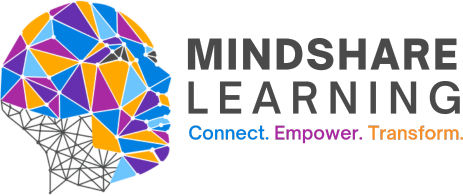Written by Julia Coburn and Ellen Palmer, WorldVuze Co-Founders
WorldVuze (www.worldvuze.com), an Ontario-based non-profit,is a platformwhere students locally and around the world can safely share and explore their own opinions with each other on their class questions.Inquiry from classrooms is inspiring real-world investigationwith questionsfrom a wide spectrum of topics – everythingfrom current events, the economy, and politics, to comic books, pets, and culture.
For over four years, prior to creating WorldVuze, we facilitated international classroom partnerships between schools in Tanzania and Canada through our Tanzanian NGO, called Cross Community Connect (www.crosscommunityconnect.org).In the process, we experienced many obstacles with the communication tools we were using, including time-consuming facilitation, time zone differences, technical issues, and a lack of sustained meaningful dialogue. In the end, our greatest concern was exposing students to a “narrow” view of any one place or issue, fearing that the connections we were forming between two classrooms in isolation had the potential to reinforce stereotypes and the “danger of the single story”.
Working in collaboration with educators from many different teaching environments, we began an iterative process to build a tool that would address these challenges and bust through the barriers. In order to help students to consider and understand many points of view, an ability we feel is a critical precursor to preparing young people to drive forward effective change;we felt it was essential to incorporate the following two things.
First, we needed to build an online space that was accessible to as many students as possible,from a diversity of backgrounds geographically, socioeconomically, and culturally,where they could share opinions. We know we can’t have all students in the world represented, or even take into account the 70 million children who are not in school, but with the advancement of technology, prevalence of cell phones, digital technology and growing access to the Internet, we feel that there is an opportunity to learn directly from each other now more than ever before.
Second, we needed a tool that would allow students to analyze all these diverse viewpoints and develop meaningful conclusions. We envisioned an easy-to-use platform where students could sort and find patterns in opinions shared and the opportunity to dig deeper to investigate why other young people are thinking the way they do.Using the variety of filters provided, on WorldVuze students can find out what their peers are thinking about internationally and, just as importantly, locally in their own communities.
[Answers to questions can be sorted by filters and seen in an aggregated format through pie charts to easily understand patterns in the way students are responding to a question.]
[Then students can dig deeper and understand why students have answered the question the way they did by reading written responses.]
In April 2014 we began a closed pilot with 30 schools in 13 countries,including classrooms in Canada, Tanzania, Sierra Leone, Sweden, and Hong Kong. During the first 4 weeks, 475 students shared over 2500 opinions on close to 70 questions posted from 33 classrooms.
To date, the elementary, middle, and secondary educators participating in the pilot have used WorldVuze as a flexible learning tool in a variety of ways in their classrooms: 95% are using it with their students in class discussions, 74% for research projects, 53% for debates, 32% for statistical analysis, and 42% for journaling in subjects ranging from English, to Social Studies and the Humanities, to Science, and Math.
A high school science teacher from Toronto, Ontariois using WorldVuze to “have students learn what is happening around the world environmentally and what actions other students are taking.” A high school English teacher from Rousseau, Ontario is using the tool to help students in “writing an international newspaper article using input from students across the world”. Another Grade 5 elementary school teacher from Illinois, United States is integrating WorldVuze to “teach persuasive writing” and also hopes students “will be able to see other opinions on the same topic”.
WorldVuzewill be available for teachers and their students to use for free (now and always)starting thiscoming September. Sign-up is currently by invitation only. If you are an elementary, middle, or secondary school teacher and would like to join the WorldVuze trusted global learning community with your class, email Julia Coburn at julia@worldvuze.com to fast track your sign-up for the fall.








